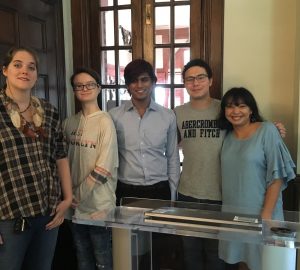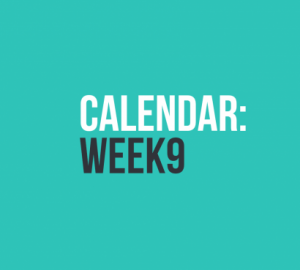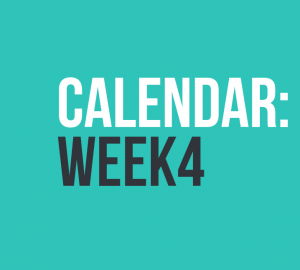
The New York Times bestselling author Sarah Vowell read from her recent book, “Unfamiliar Fishes,” as part of the Ivy Hall Writers Series, last Tuesday. Her deadpan delivery, comic timing and sarcastic humor demonstrated her knack for transforming what could have been dry historical facts into entertaining stories. Suffice it to say, there were more than a few chuckles from the audience.
Vowell has written about pop culture, democracy, imperialism, dead presidents, the radio, the Puritans and Hawaiians. In short, she writes about America — its shortcomings, peculiarities and histories. “Unfamiliar Fishes” is about the United States’ annexation of Hawaii, Puerto Rico and Guam, which secured its place as an international super power. She looks at the impact the Americanization of Hawaii had on the state’s native inhabitants, including their views of the first Hawaiian president.
Few writers can claim the great collection of accomplishments Vowell can. She was a contributing editor for Public Radio International’s “This American Life” from 1996-2008. She was one of the original contributors to “McSweeney’s” and a columnist for a number of other well-known publications. And, she has a page on IMDb, as the voice of Violet in the animated Pixar film, “The Incredibles.”
Rebecca Grace: What is the most rewarding or most challenging part of writing for the radio, or any “new” media?
Sarah Vowell: Radio is over a century old. That said, I think it’s been at least five years since I wrote a radio piece. If by “new” you mean something “computery,” I’m enough of a little old lady that the Internet still seems like make-believe to me. Mine might be the final generation of writers on this planet who make a living writing creaky, old-fangled, tree-murdering books.
Grace: How long do you take to research your books? And which are you most proud of?
Vowell: Since the first one, each book takes two or three years. I don’t really rank them. Even the first one, a diary of listening to the radio I wrote when I was twenty-five that now makes me cringe — part of what makes me cringe is that it’s so raw and youthful and angry and unedited, but I think that might be part of its value. To me, each book is a whole process, a series of memories and upsets, a collection of people, places and things. But once I write them I sort of clear the decks and move on.
Grace: You said once in an interview that it’s hard to make history entertaining, but you strive for that anyway. What are important things you do to make something entertaining, and yet, keep it “nonfiction”?
Vowell: Wow. Those quotes around nonfiction are pretty damning. Keeping something nonfiction means that everything is true to the best of my ability. As for making the books relatively breezy is editing. I read everything aloud as a write. In real time, the clunky boring stretches are all too apparent.
Grace: Who/what are your favorite contemporary nonfiction writers/books?
Vowell: I love the English writers Geoff Dyer and Jon Ronson. Ian Frazier’s Great Plains is a favorite.
Grace: What are you hiding? [Vowell said that no one asks her this question, in an interview on Powells.com a few years ago].
Vowell: You’ll never know.























